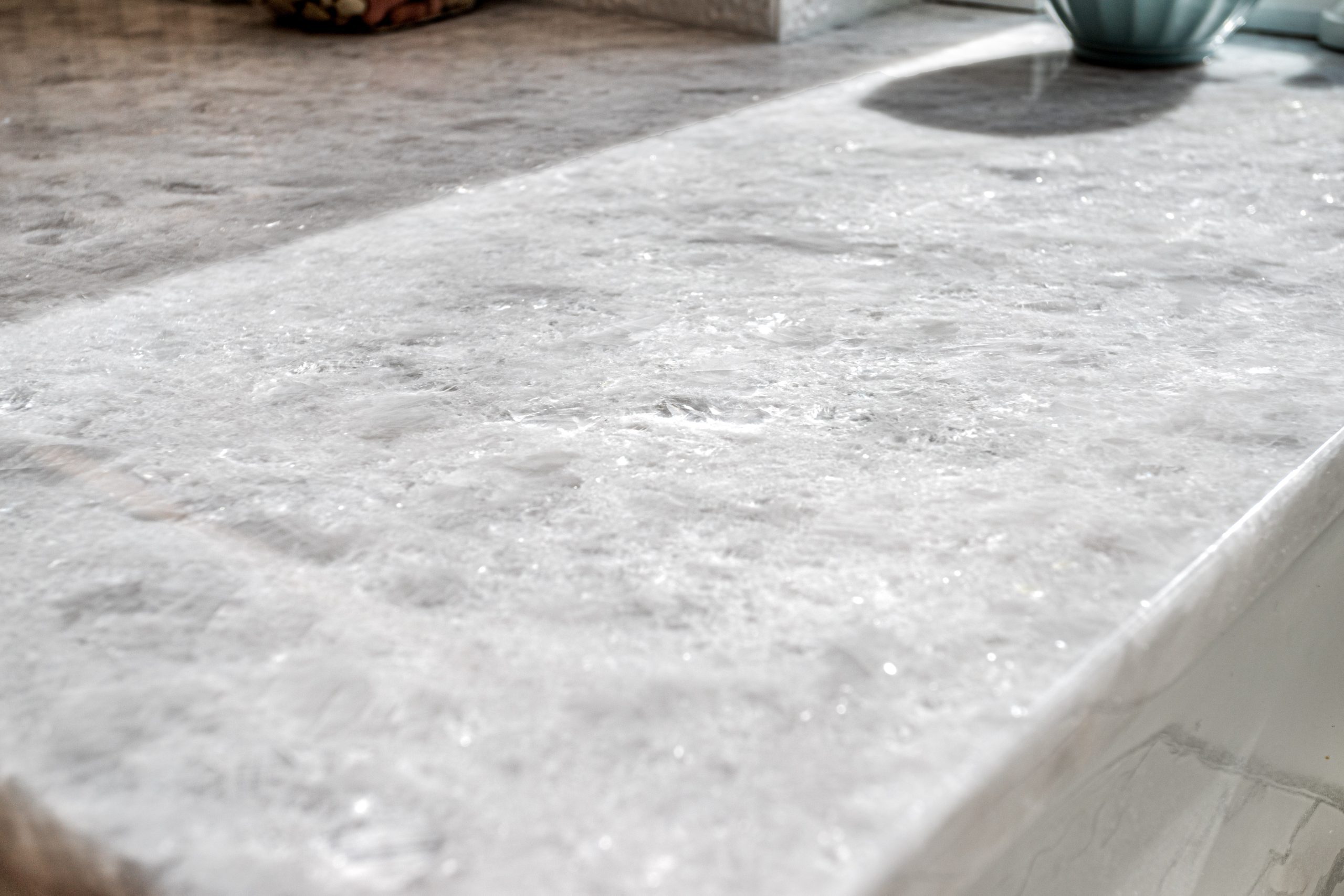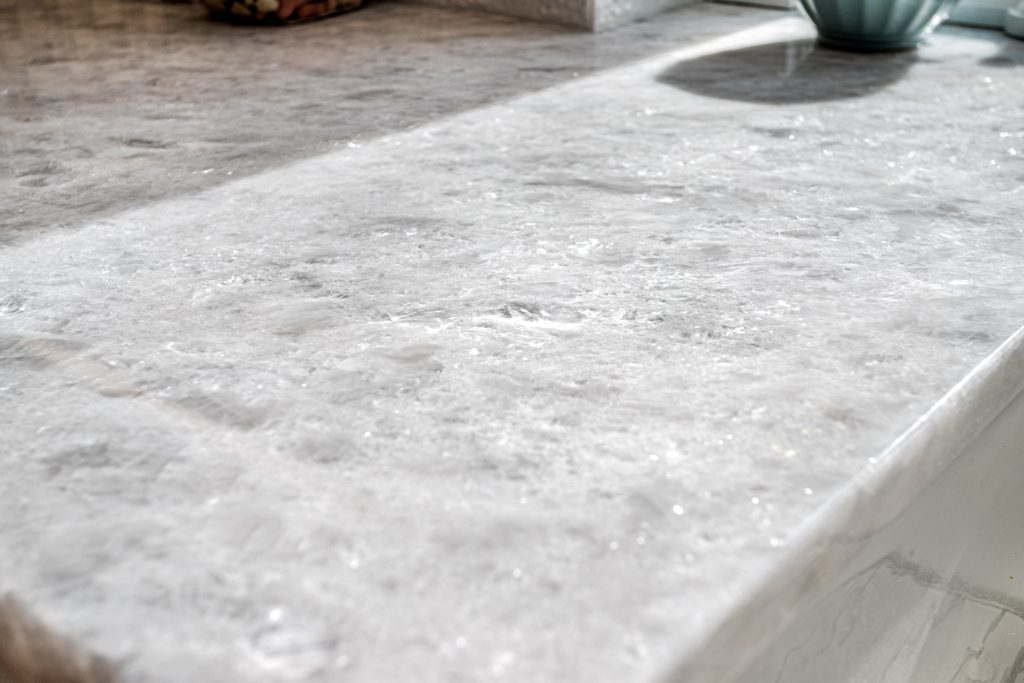

When it comes to kitchen remodeling, choosing the right countertop material is essential. Your countertop not only adds functionality to your space but also plays a pivotal role in defining your kitchen’s aesthetic. In this blog, we will delve into the various countertop options available, discussing the pros and cons of each material. From laminate to granite, marble to quartz, wood, and even concrete, we’ll explore the unique features and considerations for each.
1. Laminate Countertops:
Pros:
– Cost-effective option.
– Wide range of colors and patterns available.
– Easy to clean and maintain.
– Resistant to scratches and stains.
– DIY-friendly installation.
Cons:
– Limited heat resistance; hot pans may leave burn marks.
– Can be prone to chipping and peeling over time.
– Not as durable as natural stone or solid surface options.
2. Granite Countertops:
Pros:
– Offers a timeless, high-end look.
– Highly durable and heat-resistant.
– Resistant to scratches and stains when properly sealed.
– Adds significant value to your home.
– Available in a variety of colors and patterns.
Cons:
– Requires periodic sealing to maintain its integrity.
– Expensive compared to other options.
– Susceptible to cracks or chips if subjected to heavy impact.
3. Marble Countertops:
Pros:
– Known for its luxurious appearance.
– Aesthetically pleasing with a unique veining pattern.
– Naturally cool surface, perfect for rolling out dough.
– Resistant to heat, making it ideal for baking enthusiasts.
Cons:
– Porous material, prone to staining and etching. We recommend honing the marble to help with the etching and a high-quality stone sealer can help tremendously.
– Requires regular sealing and diligent maintenance.
– Comparatively softer and susceptible to scratches.
– Can be a higher-cost investment.
4. Quartz Countertops:
Pros:
– Engineered stone that combines the beauty of natural stone with enhanced durability.
– Non-porous, making it highly resistant to stains and bacterial growth.
– Low maintenance and easy to clean.
– Vast array of colors and patterns available.
– Achieves a consistent look without the need for sealing.
Cons:
– Can be more expensive than other options.
– Not as heat-resistant as granite countertops.
– Direct sunlight exposure may cause color fading over time.
-It may appear “fake” to some since it tries to resemble a natural product.
5. Quartzite Countertops:
Pros:
– Offers the look of marble with better durability.
– Resistant to heat, stains, and scratches.
– Highly durable and long-lasting when properly cared for.
– An excellent alternative to marble for those seeking a similar aesthetic.
Cons:
– Requires regular sealing to maintain its integrity.
– Can be a higher-cost investment.
– Limited color options compared to other materials.
6. Dolomite Countertops:
Pros:
– Provides a similar appearance to marble.
– More durable and less prone to staining.
– Offers a softer, warm look to your kitchen.
– Can withstand heat, making it suitable for hot cookware.
Cons:
– Less common and may have limited availability.
– Requires regular sealing to prevent staining.
– Care should be taken to avoid acidic substances.
7. Wood Countertops:
Pros:
– Adds warmth and natural beauty to your kitchen.
– Durable when properly sealed and maintained.
– Can be sanded and refinished to remove scratches and stains.
– Ideal for cutting and chopping directly on the surface. Although none of our clients do that so far.
Cons:
– Regular sealing and ongoing maintenance required.
– Prone to water damage and bacterial growth if not properly cared for.
– Requires extra precautions to avoid heat damage.
8. Concrete Countertops:
Pros:
– Versatile material, customizable to various shapes and sizes.
– Can be stained, stamped, or textured for a unique look.
– Heat-resistant and highly durable.
– Well-suited for contemporary and industrial-style kitchens.
Cons:
– Requires professional installation and expertise.
– Prone to cracking if not correctly reinforced.
– Sealing and periodic waxing needed for protection.
– Can be more expensive compared to other options.
– It can be difficult to find a reliable local fabricator.
Conclusion:
Selecting the perfect countertop material for your kitchen remodel is a decision that should align with your personal style, budget, and lifestyle considerations. Evaluate the pros and cons of each option to find the best fit for your needs. Whether you prefer the elegance of marble, the durability of granite, or the versatility of quartz, there’s a countertop material that can transform your kitchen into a remarkable space.
Remember to consider factors such as maintenance requirements, durability, heat resistance, and cost when making your decision. Schedule a consultation with us to gain valuable insights and make an informed choice that brings your kitchen vision to life.